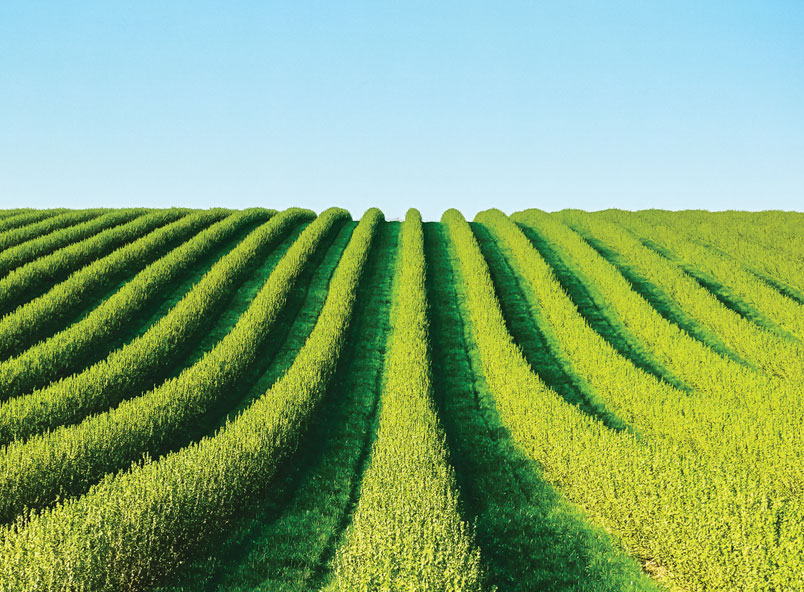



Proposal in EU trade policy
September, 2021 in Issue 3 - 2021, Markets
In the context of trade negotiations to update the EU-Chile Association Agreement, the European Commission (EC) submitted a text proposal in June for a chapter on ‘Sustainable Food Systems’. This is part of the EU’s initiatives to support a ‘green transition’, and promote responsible and sustainable value chains.
The chapter aims at ‘strengthening policies and defining programmes that contribute to the development of sustainable, inclusive, healthy and resilient food systems’. It also emphasises ‘cooperation between the Parties to improve sustainability of the respective food systems’.
The proposed chapter is clearly an issue that requires greater attention, as it could be of great relevance to Malaysia for trade in sustainable palm oil.
Earlier this year, the EC published its updated approach to trade negotiations in its ‘Trade Policy Review – An Open, Sustainable and Assertive Trade Policy’, which sets out the EU’s trade policy agenda for the coming years.
With respect to trade agreements, the strategy underlines the EU’s commitment to reinforcing its engagement with various trading partners; concluding ongoing trade negotiations; and creating the necessary conditions for the ratification of concluded trade agreements. Notably, the strategy states that the EU intends to include a chapter on sustainable food systems in future trade agreements.
The proposed chapter does not introduce binding commitments, but focuses on cooperation and collaboration between the Parties. The purpose is to strengthen policies at the bilateral and international levels in favour of ‘sustainable, inclusive, healthy and resilient food systems’.
The proposed chapter focuses on cooperation with respect to:
The proposal defines ‘sustainable food systems’ as ‘a food system that delivers food security, safety and nutrition for all in such a way that the economic, social and environmental bases to generate food security and nutrition for future generations are not compromised’.
The essential characteristics of sustainable food systems are described as:
With respect to the sustainability of food production, processing, marketing and consumption, the proposal provides that the Parties would, inter alia, commit to cooperation to reduce the use of antimicrobials, chemical pesticides and fertilisers, as well as to promote more sustainable food production, such as organic farming.
Additionally, the Parties would commit to cooperation to reduce the environmental and climate impact of food production; support sustainable food production so as to contribute to reducing greenhouse gas emissions; and ‘increase carbon sinks and reverse biodiversity loss’. Moreover, the Parties would commit to collaboration to promote ‘the uptake of healthy and sustainable diets, reducing the carbon footprint of consumption’.
In the fight against agri-food fraud and antimicrobial resistance, the Parties would commit to cooperation to establish an action plan with the aim of pursuing the objectives agreed within the chapter; to establish a Subcommittee on Sustainable Food Systems under the Sanitary and Phytosanitary Subcommittee; and to cooperate within relevant multilateral fora.
Cooperation at the multilateral level is aimed at fostering ‘the global transition towards sustainable food systems that contribute to the achievement of internationally agreed environmental, nature and climate protection objectives’.
Relevance to sustainable palm oil
The various characteristics of sustainable food systems do not only address the ‘sustainability of food production’, but also the sustainability of food processing and marketing, as well as the sustainability of food consumption including healthy diets.
These characteristics will have direct relevance to Malaysia. For example, the country has made significant efforts to ensure the sustainability of its palm oil industry.
On Jan 1, 2020, the government made it mandatory for oil palm growers and palm oil producers to be certified under the Malaysian Sustainable Palm Oil (MSPO) standard. This standard ensures responsible and sustainable production by oil palm smallholdings, plantations and palm oil processing facilities, as well as transparency and traceability along the value chain.
As at Dec 31, 2020, nearly 90% of oil palm cultivation had obtained the certification. Additionally, 428 of the country’s 452 palm oil mills – about 95% of the facilities – had received certification.
These actions are real, measurable and adopted to protect what is not only a precious resource for humanity, but Malaysia’s most important asset and comparative advantage: its forests and unique ecosystem.
The proposed chapter on sustainable food systems could therefore provide an opportunity to ensure that Malaysia’s efforts towards sustainable palm oil production are considered and recognised by the EU in future trade negotiations.
MPOC Brussels